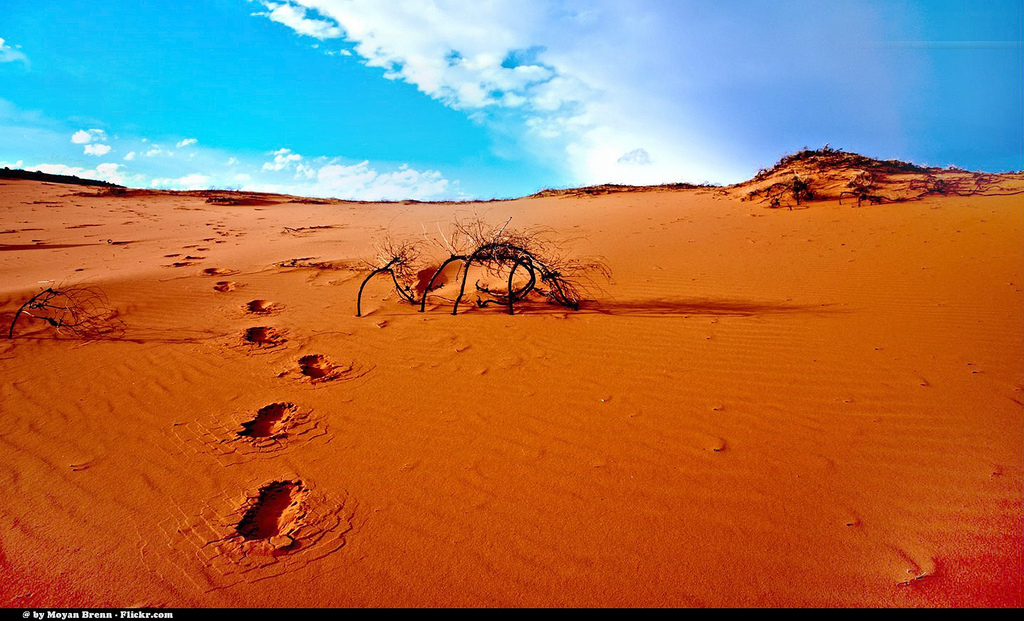
Archaeology, Earth Sciences, Paradigms, Science
“A joint international research team led by the University of Oxford, in collaboration with the Saudi Commission for Tourism and Antiquities (SCTA), has discovered a giant tusk in the Arabian Desert.
The two pieces of tusk, which together measure six feet (2.25m) in length, are thought to have belonged to a now extinct genus known as Palaeoloxodon (the so-called ‘straight-tusked’ elephants).
An elephant’s carpal bone located five metres away from the pieces of tusk was also recovered from the same sand layer at an excavation site in the Nefud Desert. The sand layer was dated to around 325,000 years before the present day in recently published work by a Swiss team (Rosenberg et al in 2013), and the Oxford team says this suggests that the elephant remains found there are also about that age.
These finds are among the first to be discovered at the site since excavations started in 2013. The researchers say the finds are hugely significant because they suggest that in order to support the life of big beasts, today’s arid terrain was much wetter and greener in the past.
Project leader Professor Mike Petraglia, from the School of Archaeology at the University of Oxford, said: ‘The discovery of the elephant tusk is significant in demonstrating just how much the climate could have changed in the Arabian Desert. Elephants would need huge quantities of roots, grasses, fruit and bark to survive and they would have consumed plenty of water too.
‘Although the sand dunes in the Nefud Desert carry on for miles in the present day, indeed across an area the size of England, around 325,000 years ago it seems the landscape would have been very different.’
The findings were revealed at the Green Arabia conference at Oxford University, at which scientists are examining the latest evidence on how early humans and animals are likely to have been affected by past climate change in the Arabian Peninsula.”…
"Ancient Climate Change", "Climate Change", Archaeology, Paradigm
Comments RSS Feed